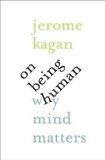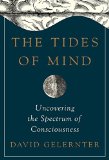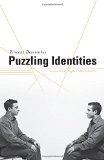new book – ‘On Being Human: Why Mind Matters’ by Jerome Kagan
March 10, 2016
(NOTE: As an Amazon Associate I earn from qualifying purchases.)
On Being Human: Why Mind Matters by Jerome Kagan (Yale University Press, 2016)
(kindle ed.), (amazon.co.uk), (UK kindle ed.)
Book description from the publisher:
In this thought-provoking book, psychologist Jerome Kagan urges readers to sally forth from their usual comfort zones. He ponders a series of important nodes of debate while challenging us to examine what we know and why we know it. Most critically he presents an elegant argument for functions of mind that cannot be replaced with sentences about brains while acknowledging that mind emerges from brain activity.
Kagan relies on the evidence to argue that thoughts and emotions are distinct from their biological and genetic bases. In separate chapters he deals with the meaning of words, kinds of knowing, the powerful influence of social class, the functions of education, emotion, morality, and other issues. And without fail he sheds light on these ideas while remaining honest to their complexity.
Thoughtful and eloquent, Kagan’s On Being Human places him firmly in the tradition of Renaissance essayist Michel de Montaigne, whose appealing blend of intellectual insight, personal storytelling, and careful judgment has attracted readers for centuries.
Google Books preview:







